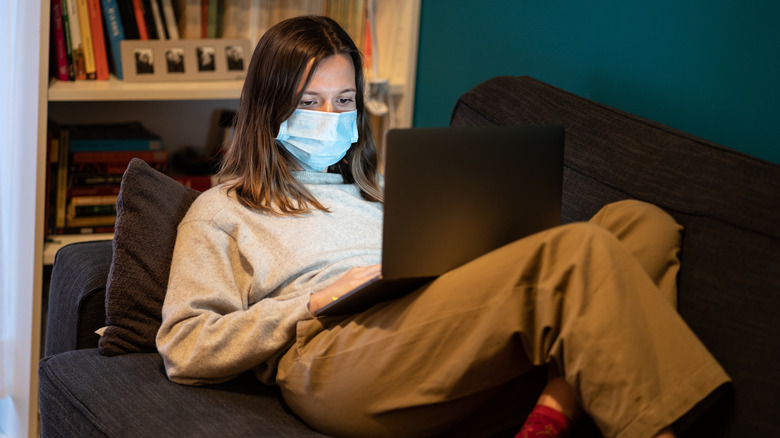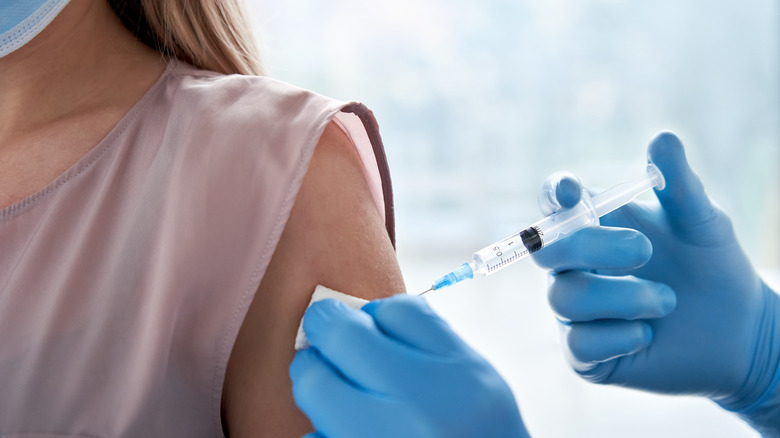If You Get COVID-19 In Between Vaccine Doses, This Is What Happens
The two-dose COVID-19 vaccines from Pfizer-BioNTech and Moderna provide substantial protection against the virus, even after the first dose. However, it is still possible to contract COVID-19 after getting your first shot (via HuffPost). While both vaccines are 80 percent effective at preventing infection after the first dose, it takes two weeks to build up this immunity, and even then, there is a wait time of three to four weeks between each dose. Although you may still be more vulnerable to infection after receiving your first shot, you'll likely be protected against severe illness, hospitalization, and death.
"In the studies, nobody who got vaccinated died. Obviously in the real world, we have many, many more people, but they're still extremely, extremely effective at preventing severe disease and death," Valerie Cluzet, an infectious disease physician and medical director of infection control and antibiotic stewardship at Nuvance Health, told HuffPost. "That's true certainly after your second dose, but probably also true after the first dose."
Don't skip the second dose
If you get COVID-19 in between vaccine doses, you should still plan to get your second shot. Completing the vaccine series is essential to achieving full immunity (via Refinery29). However, depending on when you get infected, you might need to reschedule your second vaccine appointment. After you test positive or first develop symptoms, you'll need to isolate yourself and quarantine for at least 10 days. Once you test negative and are no longer contagious, you can receive your second and final dose.
If you contract COVID-19 shortly after getting your first shot, you may be able to keep your original appointment. However, if you test positive about a week or so beforehand, you should reschedule to a later date. While it's okay to get your second shot a little later than anticipated, you shouldn't wait too long if you can help it. "The CDC has stated that you can wait up to six weeks before getting a second dose of the mRNA vaccines," Dr. Abisola Olulade, a physician in San Diego, told Refinery29. "Beyond this time frame, there is limited data available on efficacy. We don't have a lot of evidence on how it would affect the efficacy at this point."


